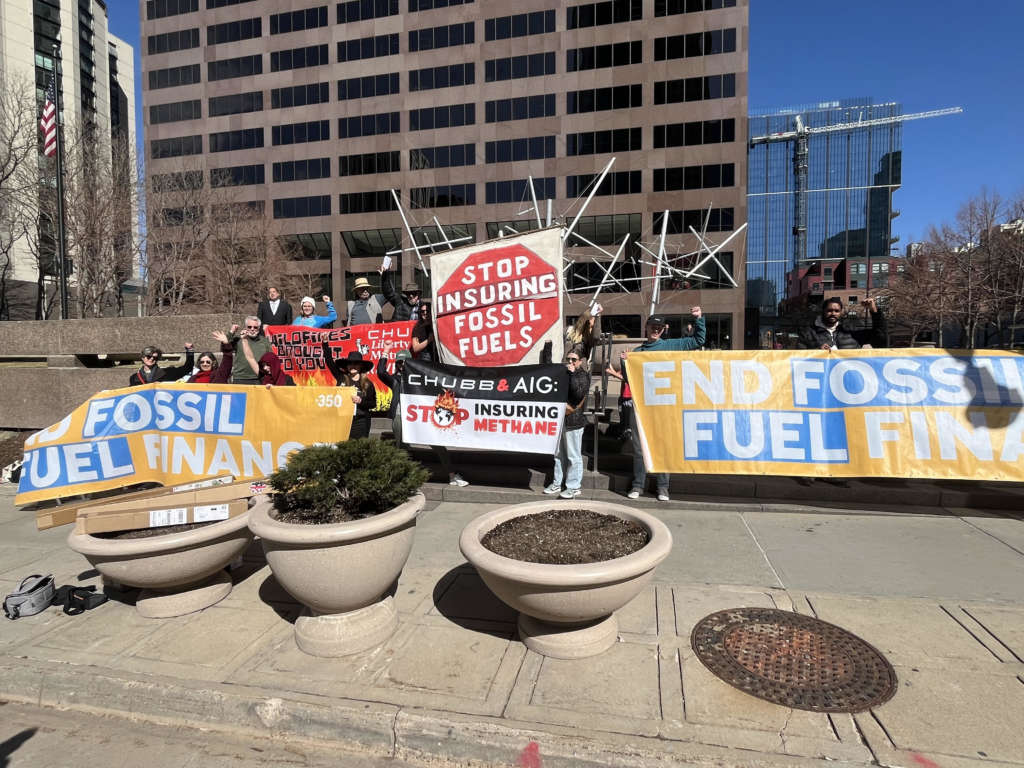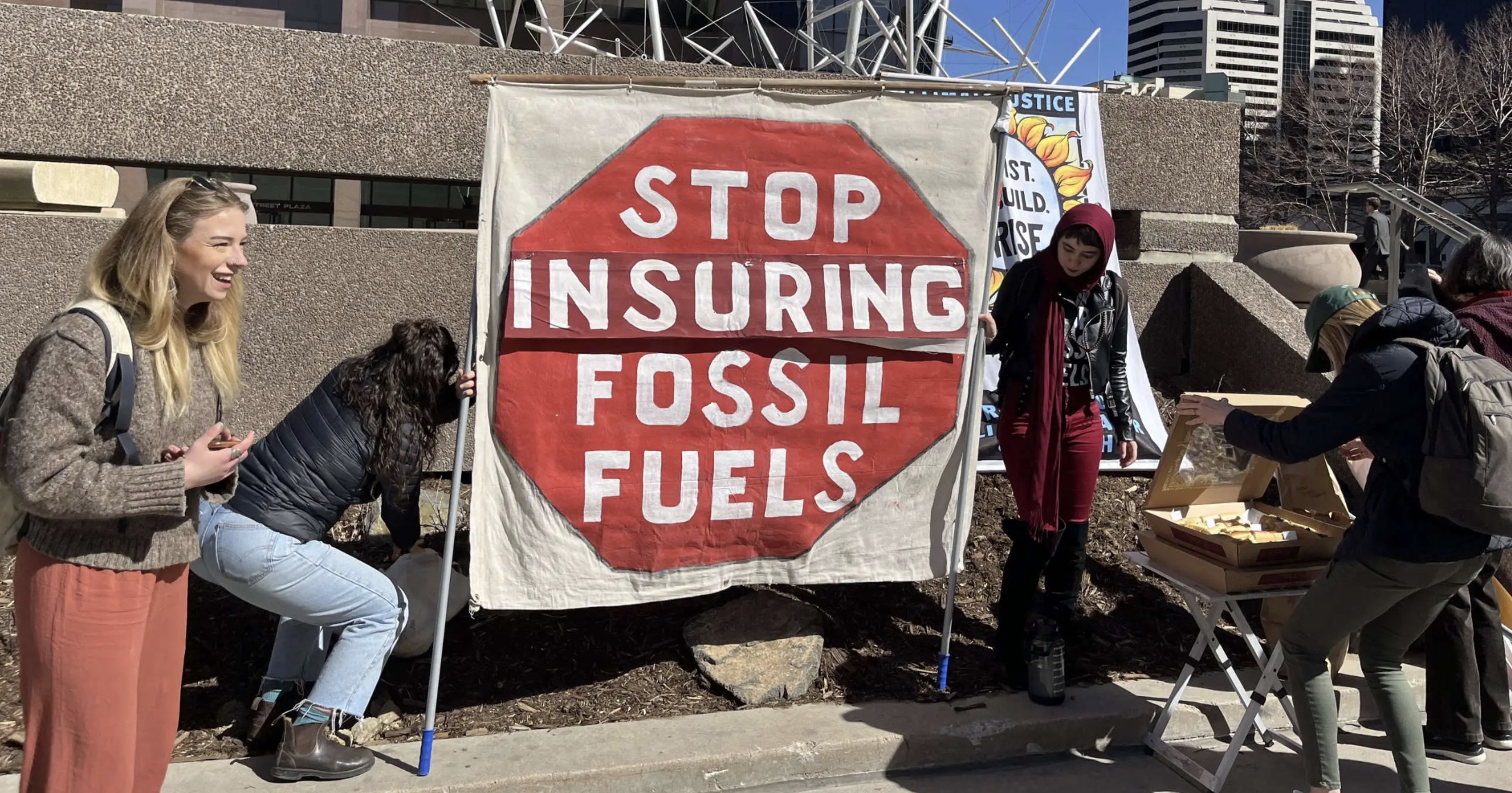This week, climate activists in major cities across Colorado rallied for one goal: to get insurance companies to end their investments in the fossil fuel industry. They started with a protest in downtown Denver on Wednesday.
The event was part of a global week of action by the “Insure Our Futures” campaign, which aims to cut off insurance for fossil fuel projects and companies. From Feb. 26 to March 3, numerous groups across multiple continents organized events as part of this campaign.

In Denver, advocates from 350 Colorado, Rainforest Action Network, and other groups gathered with banners on Wednesday on the sidewalk of 17th Street, outside the office of American International Group (AIG), a large global insurance company that insures both coal mines and oil and gas developments.
“So we specified this location because it’s in the middle of Denver, and we know that this is a city where there’s a lot of change happening,” said Melissa Burrell, 350 Colorado’s Team Coordinator for Denver, Boulder, and Colorado Springs. “It’s the capital. Things are going on. We wanted it to be very visible.”
Climate issues have been a sticking point at the Capitol in recent years. Last year, legislators passed a bill that commits the state of Colorado to reduce greenhouse gas emissions by 100% by 2050.
But Denver is not the only place where these changes are taking place. In 2020, the Boulder County Board of Commissioners decided that the county would move away from insurance companies that invest in and insure fossil fuel companies.
“That was our biggest precedent to know that this is possible, and this is possible in Colorado specifically,” Burrell told the Colorado Times Recorder. “And that’s what we’ve really been trying to pull on in all of these events that are happening around the state to say it’s been done before and it’s been done here. So we want to make sure that can happen again.”
Over the course of an hour, multiple advocates from 350 Colorado and other partner organizations took the microphone to speak on how they and others have been impacted by climate-fueled disasters.
“I actually moved here in 2007, a couple of years after Hurricane Katrina. That was over 16 and a half years ago now,” said Micah Parkin, Executive Director of 350 Colorado. “… Hurricanes are getting worse and worse as the global temperatures increase. And thousands and thousands of people lost their homes. And guess what? The insurance companies that, as I said, are all too often funding and financing, and insuring fossil fuel companies and projects pulled out after Hurricane Katrina. So many people could not get insurance that the state of Louisiana actually had to create its own insurance.”
Others brought up the devastating Marshall Fire of Dec. 2021, which destroyed over 1,000 homes in Boulder County.
“Our home and all our belongings were destroyed by the Marshall Fire, in December 2021. While still trying to get the full payout from our insurance company, we are concerned we may not be able to insure our new home. Its destruction was fueled by the climate crisis, and it may be considered too much of an insurance risk,” said Susan Nedell, a Louisville resident who also spoke at the event.

On Thursday, advocates would go on to gather in Boulder, Fort Collins, and Colorado Springs for additional demonstrations. Some delivered letters to local government offices urging them to follow Boulder County’s lead in stepping away from fossil fuel-invested insurers.
Advocates are hopeful that they will be able to effect positive change in Colorado.
“Things like this feel impossible until it starts to be done,” Burrell said. “And the fossil fuel industry does that tactically. They do that very specifically to make it seem like this is the norm. This is normal. Why would we change something like that? And it feels like it’s a huge hill to climb. But we are just really advocating that people use their imaginations and know that we can’t continue with business as normal right now.”




